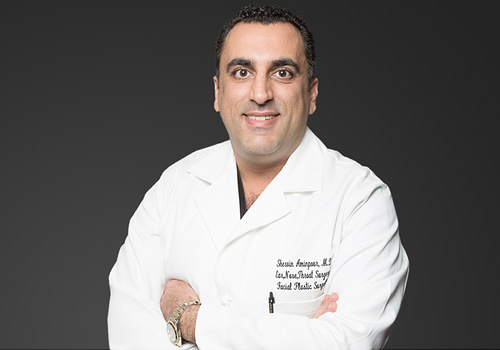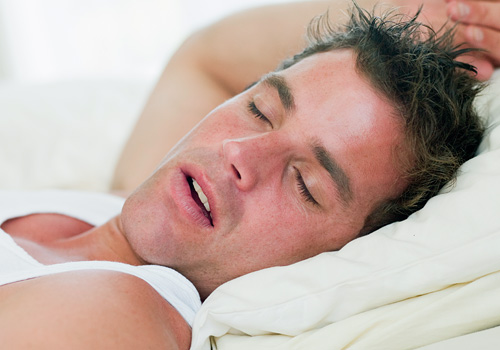Mouth Guards
Sleep apnea is caused by relaxation of muscles in the throat during sleep. As the muscles relax, they cause the airway to close. The brain, sensing that you are not getting oxygen, wakes you up briefly so you can reopen the airway. This waking period is extremely short, often too short to remember it ever happened.

This pattern of waking, falling back asleep, relaxing your throat muscles, and waking again can happen many times per hour, sometimes up to 30 or more. While you may not remember a single instance of it in the morning, it drastically reduces your quality of sleep.
Patients with sleep apnea are likely to snore. Both conditions lead to a broken, unsatisfying sleep. Fortunately, mouth guards may be an easy, noninvasive way to correct these issues.
How mouth guards work
A mouth guard is worn during sleep to prevent sleep apnea. It looks much like a mouth guard worn by hockey or football players. However, instead of protecting the teeth, this kind of mouth guard keeps the airway open while you sleep by stabilizing the tongue, lower jaw, the soft palate or the uvula. Even if you roll onto your back and completely relax all your throat muscles, the airway will remain open.
There are different kinds of mouth guards depending on the exact cause of your sleep apnea. Dr. Aminpour will perform a thorough examination to determine which will best suit you. Once this is done, a mold is made of your mouth so that the mouth guard can fit you perfectly.
By utilizing a mouth guard, patients report a dramatic improvement in their sleep apnea symptoms, including snoring. This results in a better night’s sleep, causing patients to feel brighter and more awake during the day. A mouth guard may be the perfect sleep apnea treatment, if you have been suffering from this condition. Please call our office to set an appointment.




